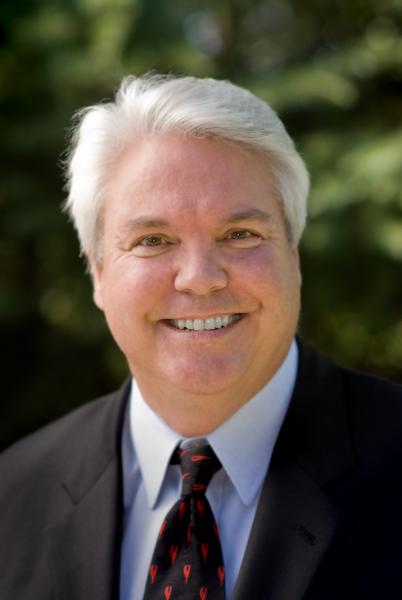Q&A with Dan Wood: Medical Board Wants Patients To Have The Best Doctors

 The hardest job in California government is not serving as governor. It's not wearing the Los Angeles police chief badge. The hardest job is serving as the state medical board's public information officer.
The hardest job in California government is not serving as governor. It's not wearing the Los Angeles police chief badge. The hardest job is serving as the state medical board's public information officer.
The board is one of the most important public agencies in the state, perhaps the entire country, because of the sheer volume of medical professionals it oversees. The decisions the board makes can have life or death consequences for patients.
When the board makes the right call, nobody notices. When the board lets a doctor continue to practice who goes on to kill a patient, hellfire rains down. The person holding the umbrella is the PIO. For most of my journalism career, the PIO has been held by one person, Candis Cohen. She was always quick to respond no matter the time of day or night, unfailingly polite no matter how rude the questions being thrown at her, and not afraid to challenge a reporter's presumptions. (She told me once that my questions were "shrill," and she was right.)
After Cohen retired, the board hired veteran broadcast journalist Dan Wood to take the spot. Wood already has shown himself to be responsive, polite and eager to engage with the media. I asked him a few questions via email last week, and here's what he had to say. The first part of the interview is below. The second part will run later this week. The interview has been edited for space and clarity.
Q: You were a reporter earlier in your career, most recently at CBS in Sacramento, is that right? What first drew you to reporting?
A: My career started in 1971 at Texas Tech University where I started in radio. As a DJ, I quickly learned that spinning records was rather boring. Covering news events was much more exciting and I thrived on deadlines. My first big interviews were musician Muddy Waters, rocket scientist Dr. Werner Von Braun and a host of politicians. I was getting to meet and talk with people, one on one, and that's something very few folks get to do.
Q: How did you make your way from those early jobs into a news anchor spot on KOVR?
A: I transferred to The University of Texas where I got my BS with Honors, in Radio, Television and Film. I again was working on campus news productions as an anchor from which I put together a good audition tape to send out. Just as I was graduating I was offered a job at the CBS station in Colorado Springs, KKTV 11. From there I went to Lansing Michigan as News Director and anchor at WJIM another CBS affiliate. After nearly two years, I decided that Michigan was way too cold for my taste and I started sending tapes to stations across California. KSEE (NBC) in Fresno hired me and I anchored there for nearly three years or until the station was sold and new owners came in and cleaned house.
Suddenly out of a job for the first time, I started sending out tapes and visiting stations. KOVR (then the ABC station) hired me to anchor and produce a noon news and talk show. When the show was canceled, I moved into the news department. I found Sacramento to be a great town with perfect weather and a great place to raise a family. Sort of the Goldilocks town, not too big but not too small, just right. My next moves would have been to LA, San Francisco or New York City and I really did not want to try to raise a family in those cities. Sacramento is home.
Q: I have never seen this line on a resume before. Your LinkedIn profile has you working as a "Graphics superstar" from 2000 to 2009. How do you back up a claim like that?
A: I was always keeping a backup position in place due to the fact that broadcasting can dump you at any time. I not only designed graphics but trained people on how to get the media on your side. A lot of people have no idea how journalists get stories or how to get their story on the air. I told them how.
Q: What specifically in your background prepared you for the job that you have now, as the Public Information Officer at the Medical Board of California?
A: Being a journalist, I can anticipate where a story will go and the angle a reporter is going to take. Knowing what to expect, and how I would handle a story as a journalist, gives me insight as to what to expect from other journalist.
Q: When you were considering the job, what sort of research did you do into the types of communications challenges that the board faced? Were there any specific stories or investigative series that you read?
A: I first searched the MBC website for news releases to see how they have been writing them, how often and if the MBC was proactive or reactive. I also googled Medical Board of California for stories written in papers like the LA Times, San Diego Union-Tribune, San Francisco Chronicle and others. Research is important in any job search. I also did searches on the people who run the medical board. The information was valuable and I used it in my interviews.
Q: Based on that research and on what you have learned since starting the job, how do you think reporters have accurately identified problems or deficits in the board's oversight and how have reporters veered off course?
As with any government regulatory agency, you have to expect to take some hits. Some reporters feel the medical board is slow to act; others think we have much more power than we do. Our job is to make sure physicians and other medical practitioners are proper educated before being granted a license to practice in California.
When charges of substandard care are leveled, we investigate and if necessary we will bring the accused physician before the board to explain his actions. The board will then decide what disciplinary action to take, such as probation and reeducation all the way up to full revocation of the physician's license. In some cases criminal cases are filed by state, local or federal officials. Our investigations can become part of those cases as well. We also are searching for people practicing medicine without a license. Bottom line, we want Californians to have the best medical professionals possible treating them.
A: When you say that you looked at how often the board was reactive vs. proactive, what did you find? Has it been too reactive and not proactive enough in the past?
Due to a hiring freeze, the position of director of public affairs was not filled when my predecessor retired. As a result people had to fill in when a journalist called. This did not allow time for development of a proactive communication program.
Next: Lessons learned from the Michael Jackson case and prison doctors under fire

